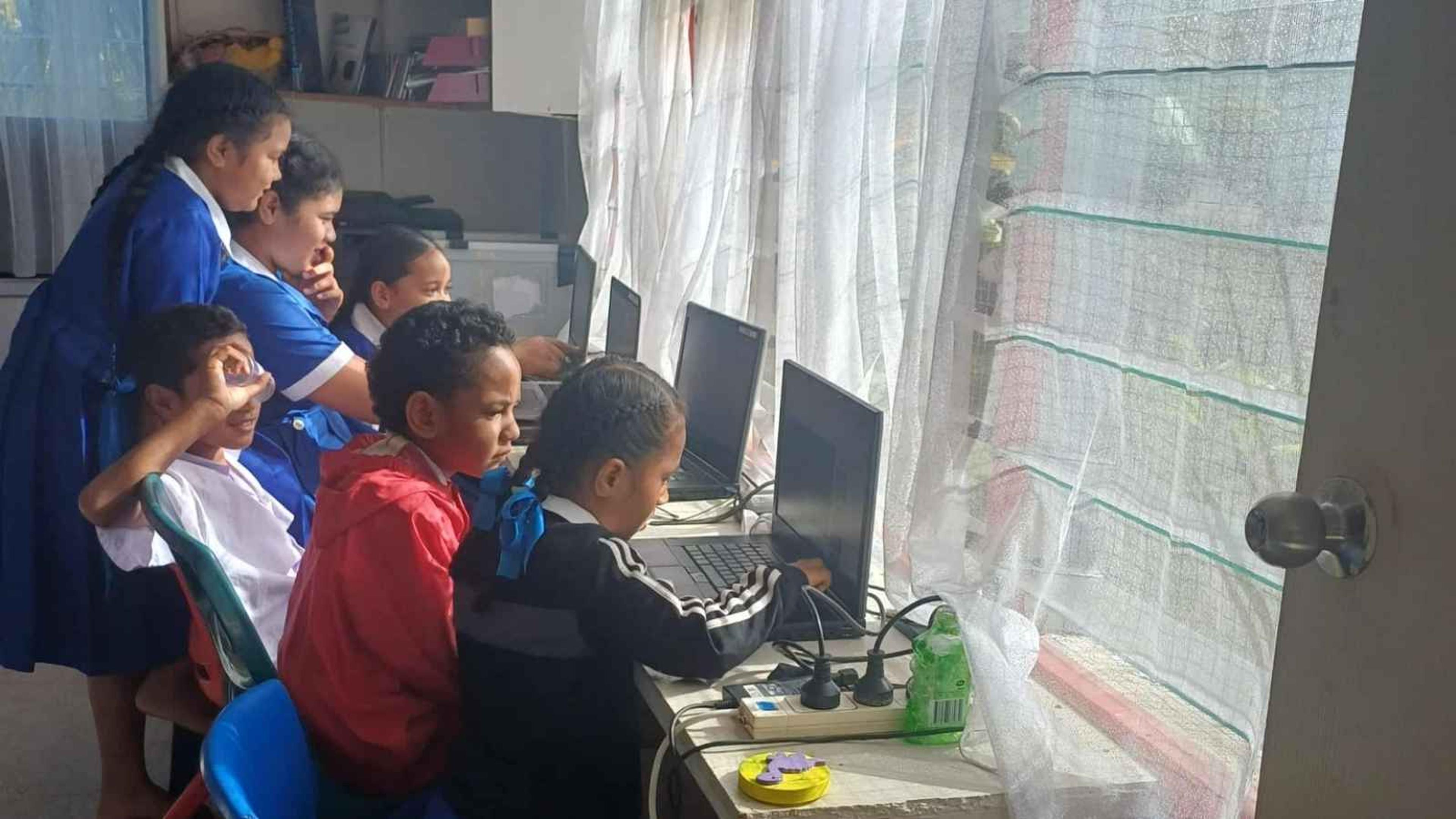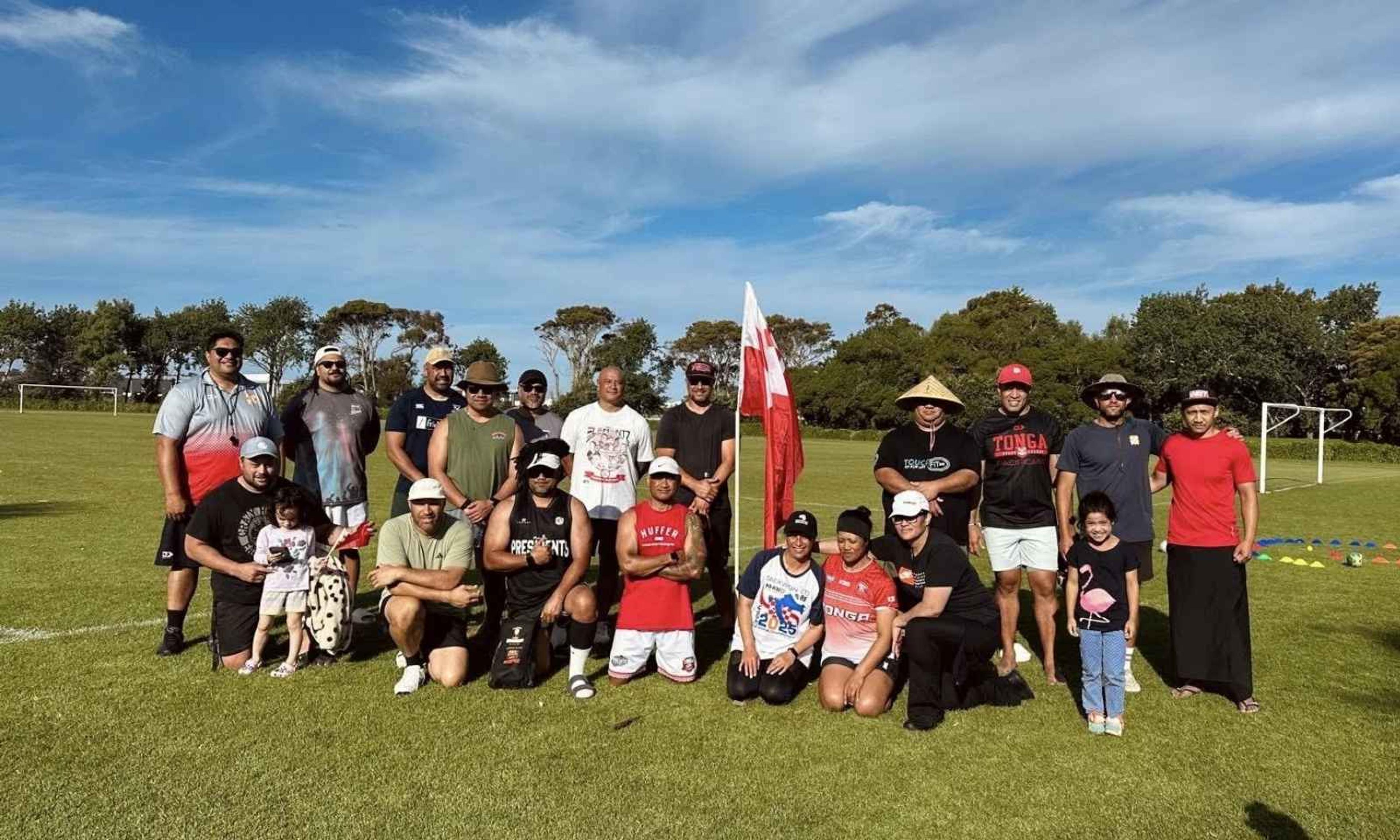

Supermarket staff at Woolworths NZ and radiologists have gone on strike this week over pay rates.
Photo/supplied
Radiologists go on strike as supermarket workers warn against intimidation
More than 120 technologists, sonographers, and administrators at Pacific Radiologist walked off the job, citing their frustration over failed pay negotiations.


‘A Library for the Heart of Tonga’: Building a hub for Nuku’alofa

The phone call that changed everything: Social worker’s new life after kidney transplant

Tonga Touch Rugby Masters call on diaspora to pull on the red and white again

Mental health targets risk hiding Pacific people in crisis, expert

‘A Library for the Heart of Tonga’: Building a hub for Nuku’alofa

The phone call that changed everything: Social worker’s new life after kidney transplant

Tonga Touch Rugby Masters call on diaspora to pull on the red and white again
On the day thousands of Woolworths staff walked off the job, health workers at Pacific Radiologist (PR) staged their protest across Aotearoa.
More than 120 technologists, sonographers, and administrators at PR left work on Tuesday to strike against what they called regional pay rates.
The strike action was held in Christchurch, Wellington, and Pacific Radiology sites across the regions.
The workers, members of the Public Service Association Te Pūkenga Here Tikanga Mahi, voted to strike after claims the company proposed different pay rates for people doing the same work based on the region they are in.
Union delegate Livi McHugo said members agreed on strike action after 10 months of failed pay negotiations with the company.

Photo/supplied
McHugo said some scan appointments, scheduled during the strike period including CTs, X-rays, ultrasounds, and MRIs, were affected or needed to be rescheduled.
"We should be paid for the skills we have and care we give patients, not for where we live," another union member Livi McHugo said.
"They’re not proposing regional rates for everyone but we’re standing together because we don’t accept it for anyone."
The PSA said the offer would see a sonographer in Christchurch paid around five per cent less than a sonographer doing the same work in Wellington.
"An MRI technologist in Christchurch would be paid around six per cent less than they would in Hamilton.
"Experienced practitioners have already left Pacific Radiology for better pay offered by other medical imaging services.
"Members are concerned regional rates will only exacerbate recruitment issues in lower paid areas and damage workplace culture.
Watch FIRST Union spokesperson Rudd Hughes' interview below.
"A pay increase that’s fair for everyone and brings wages closer to what other companies offer is what will actually stop people leaving and bring new people in."
MRI technologist Kirsten Miller says, "We work very hard to get patients in as soon as possible, to get the right scan, to get their results, all with a real focus on patient care.
"For us to keep giving that high-quality care, we need to keep our experienced staff here."
McHugo said, "Most of us appreciate how we’ve been treated in the past and don’t want that to change.
"We just want a fair pay offer so we can look after ourselves and keep looking after patients."
Pacific Radiologist has been approached for comment.
In August, hospital MRI and nuclear medicine technologists went on strike for four days.

Workers at Woolworths, formerly Countdown supermarkets, walked off the job on Tuesday. Photo/supplied
Their union, Apex, said the workers walked out because of failures by Te Whatu Ora Health New Zealand to address pay claims, adding that the difference between public and private pay rates was more than 30 per cent.
It's been a frustrating week for workers particularly staff at Woolworths supermarkets who also walked off the job on Tuesday.
Close to 10,000 staff, members of FIRST Union, agreed to strike action after what they said followed months of "fruitless negotiations" with the company.
While the walkout was a success, a union official said Woolworths NZ must "stop the spin and intimidation".
Workers walked out of supermarkets at midday on Tuesday for two hours, rallying in front of more than 40 stores - from the far north to Invercargill.
FIRST Union National Secretary for Retail and Finance, Rudd Hughes, says the strike action was a strategic and focused demonstration of how much a living wage and safer staffing levels mean to Woolworths workers.
"The response from the public around the country had been supportive and understanding."

Supermarket staff at Woolworths picket outside their workplace during Tuesday's walkout. Photo/supplied
Hughes said many of the company’s responsive comments to the media and the public about the bargaining and pay were not true.
He confirmed that some Woolworths workers were served with suspension notices for participating in Tuesday’s walkout but dismissed it as a "pointless intimidation tactic" and a "farce".
"It’s bully-boy behaviour during a legal strike action, but it’s also weird and inappropriate given the strike was ending in two hours and the notices were invalid.
"Workers had already suspended themselves - we let the company know that on Monday afternoon. Woolworths did it to intimidate, and it didn’t work."
Woolworths said the suspension letters emailed to Union members on Wednesday were to confirm that "they would not be paid for the two hours they were on strike, as is standard practice.
"Members were also texted to alert them to the email. We also notified the union of this in advance," a company spokesperson said in a statement.
But Hughes said they would raise the "leaked and factually incorrect bargaining information" provided to the media and the public by Woolworths during negotiations with the company on Wednesday.
He said the private bargaining information provided by Woolworths should not go unscrutinised, and nor should the company’s recent attempts to portray itself as "struggling" in any financial sense.
Watch William Terite's take on NZ's supermarket duopoly below.
"Does anyone really think that thousands of people struggling with low wages would be taking to the streets and foregoing two hours’ pay if a 10 per cent wage rise was on the table?
"Yes, Woolworths did increase wages substantially when we last negotiated an agreement in 2022, but they do not need a pat on the back for previously having the ambition to pay a living wage.
"Woolworths’ average yearly pay offer to workers is below the current Household cost of living growth, below many of their retail competitors, way below the new living wage, and absolutely below par to a bargaining team made up primarily of their employees.
"They’re halfway through an ambitiously unnecessary $400 million rebrand and are trying to cut labour costs for the next two years. They are no longer a market leader on pay and certainly should not talk that talk while threatening striking workers during a legal industrial action.
"Last week’s Annual Grocery Report from the Commerce Commission tells the story pretty well - they’re part of a powerful duopoly worth $25 billion with a captured market that they can price gouge due to a lack of government intervention. They do not struggle."
Hughes said the FIRST Union bargaining team wanted fair and productive negotiations with Woolworths and recognition that thousands of workers taking an unpaid two-hour strike action on three days’ notice was a firm indication of how much a living wage and safer staffing levels in stores meant to supermarket workers.
Watch Lara Dolan, of the Māngere Budgeting Services Trust, talk about the first social supermarket in South Auckland.